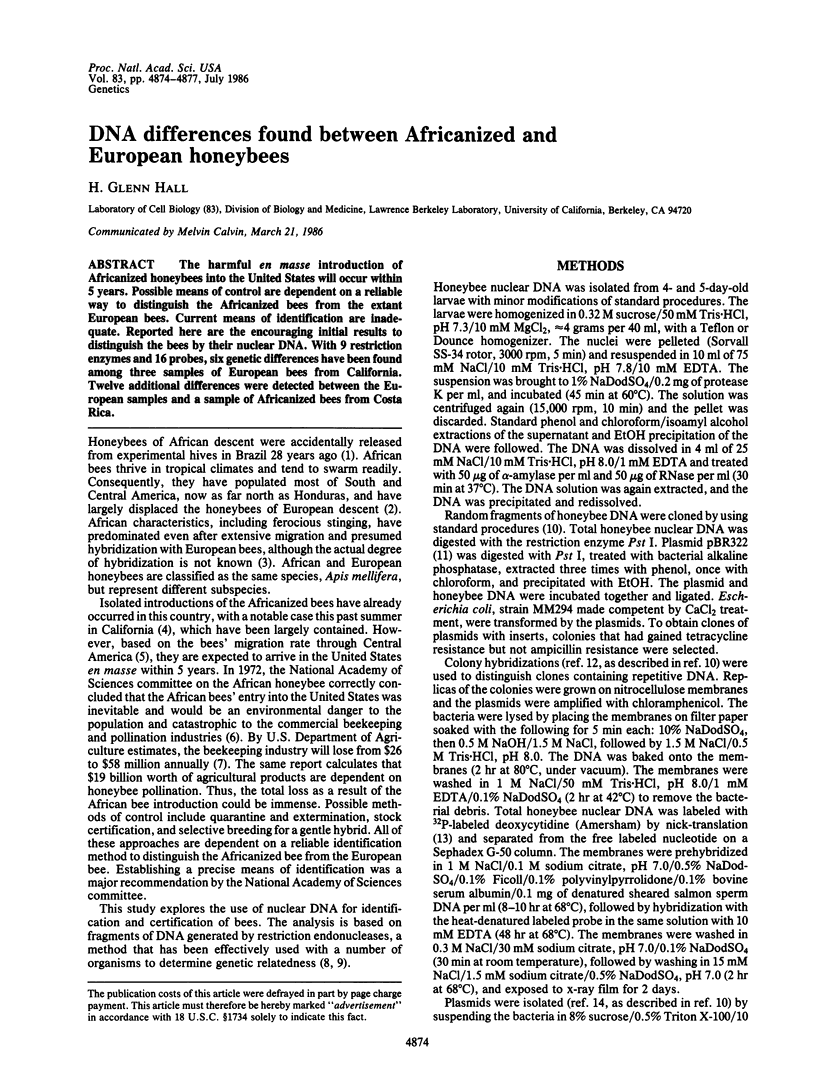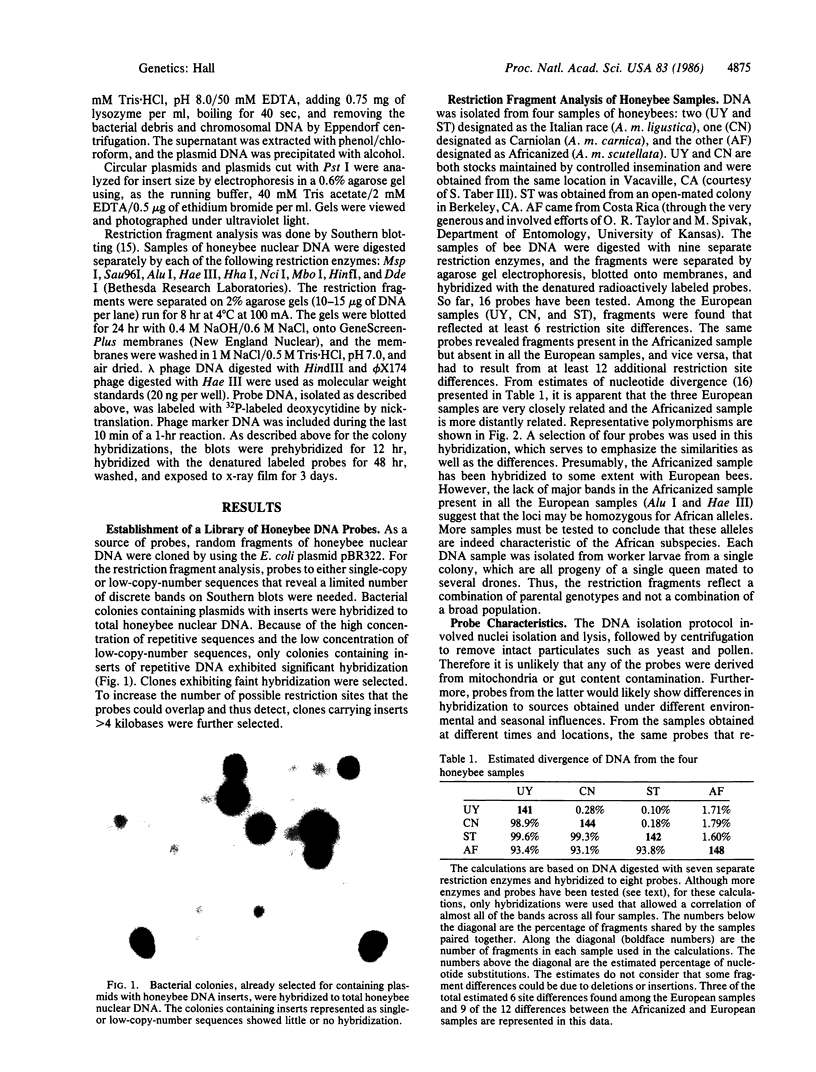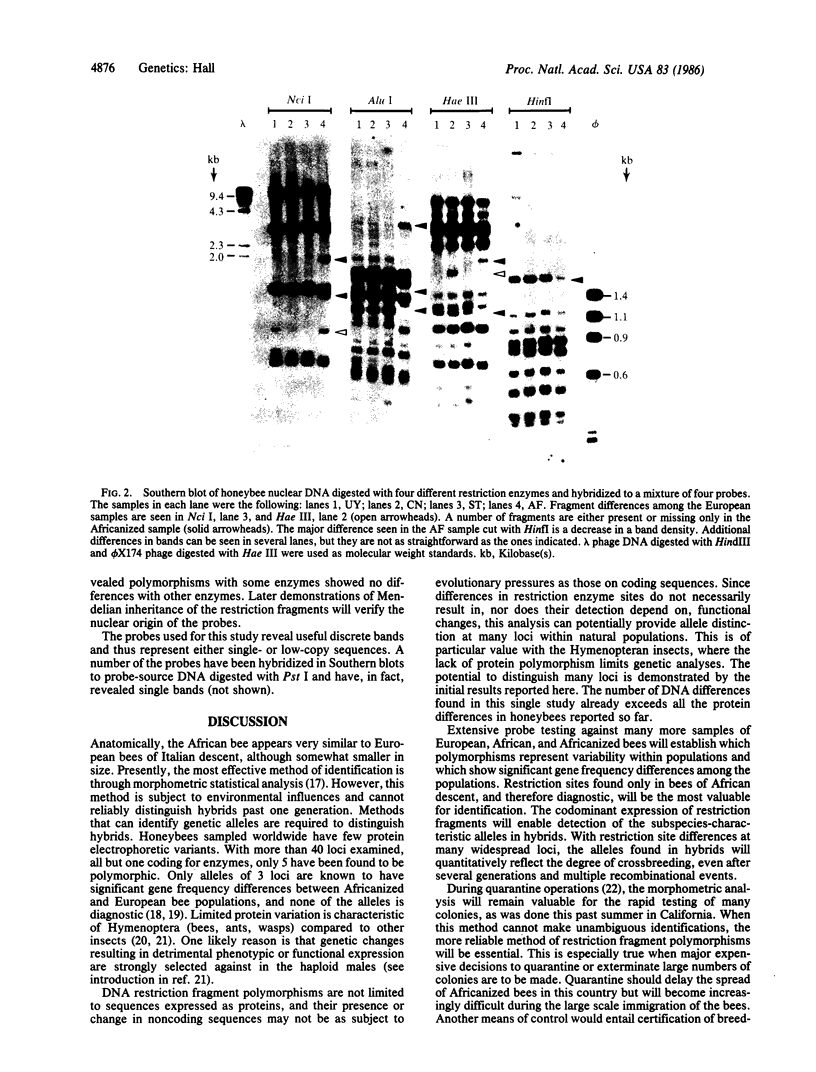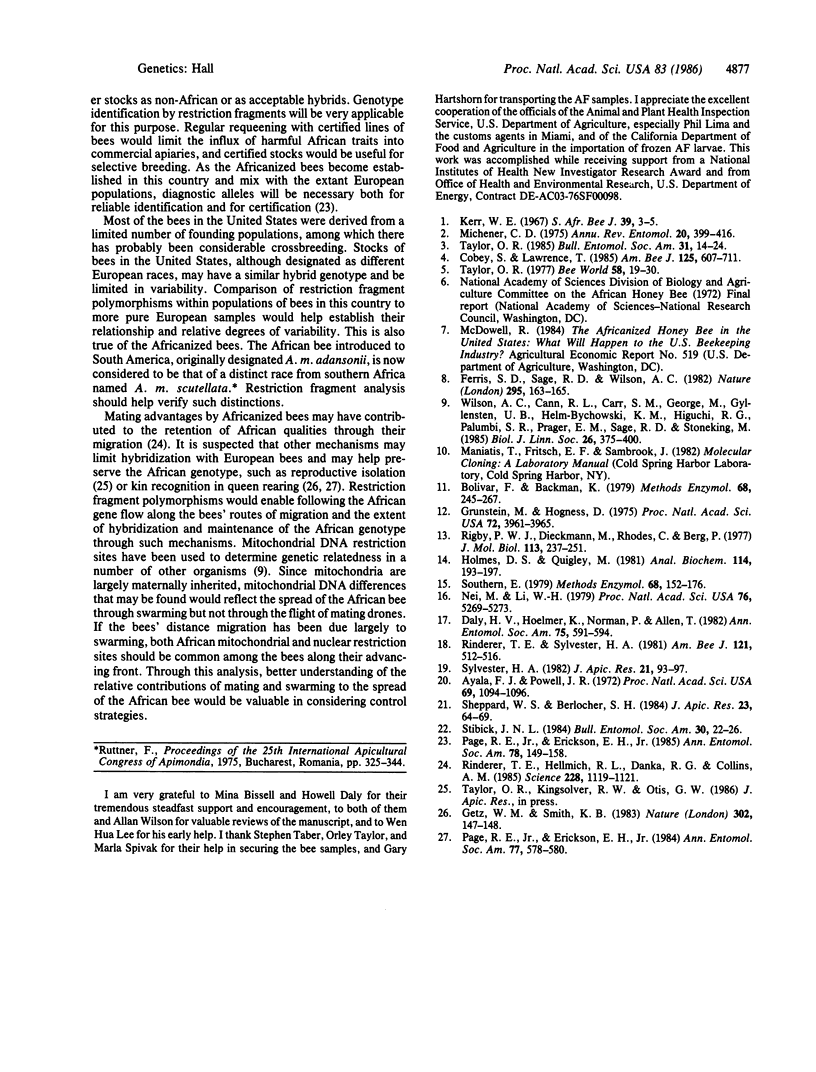Abstract
The harmful en masse introduction of Africanized honeybees into the United States will occur within 5 years. Possible means of control are dependent on a reliable way to distinguish the Africanized bees from the extant European bees. Current means of identification are inadequate. Reported here are the encouraging initial results to distinguish the bees by their nuclear DNA. With 9 restriction enzymes and 16 probes, six genetic differences have been found among three samples of European bees from California. Twelve additional differences were detected between the European samples and a sample of Africanized bees from Costa Rica.
Full text
PDF



Images in this article
Selected References
These references are in PubMed. This may not be the complete list of references from this article.
- Ayala F. J., Powell J. R. Allozymes as diagnostic characters of sibling species of Drosophila. Proc Natl Acad Sci U S A. 1972 May;69(5):1094–1096. doi: 10.1073/pnas.69.5.1094. [DOI] [PMC free article] [PubMed] [Google Scholar]
- Bolivar F., Backman K. Plasmids of Escherichia coli as cloning vectors. Methods Enzymol. 1979;68:245–267. doi: 10.1016/0076-6879(79)68018-7. [DOI] [PubMed] [Google Scholar]
- Ferris S. D., Sage R. D., Wilson A. C. Evidence from mtDNA sequences that common laboratory strains of inbred mice are descended from a single female. Nature. 1982 Jan 14;295(5845):163–165. doi: 10.1038/295163a0. [DOI] [PubMed] [Google Scholar]
- Grunstein M., Hogness D. S. Colony hybridization: a method for the isolation of cloned DNAs that contain a specific gene. Proc Natl Acad Sci U S A. 1975 Oct;72(10):3961–3965. doi: 10.1073/pnas.72.10.3961. [DOI] [PMC free article] [PubMed] [Google Scholar]
- Holmes D. S., Quigley M. A rapid boiling method for the preparation of bacterial plasmids. Anal Biochem. 1981 Jun;114(1):193–197. doi: 10.1016/0003-2697(81)90473-5. [DOI] [PubMed] [Google Scholar]
- Michener C. D. The Brazilian bee problem. Annu Rev Entomol. 1975;20:399–416. doi: 10.1146/annurev.en.20.010175.002151. [DOI] [PubMed] [Google Scholar]
- Nei M., Li W. H. Mathematical model for studying genetic variation in terms of restriction endonucleases. Proc Natl Acad Sci U S A. 1979 Oct;76(10):5269–5273. doi: 10.1073/pnas.76.10.5269. [DOI] [PMC free article] [PubMed] [Google Scholar]
- Rigby P. W., Dieckmann M., Rhodes C., Berg P. Labeling deoxyribonucleic acid to high specific activity in vitro by nick translation with DNA polymerase I. J Mol Biol. 1977 Jun 15;113(1):237–251. doi: 10.1016/0022-2836(77)90052-3. [DOI] [PubMed] [Google Scholar]
- Rinderer T. E., Hellmich R. L., 2nd, Danka R. G., Collins A. M. Male reproductive parasitism: a factor in the africanization of European honey-bee populations. Science. 1985 May 31;228(4703):1119–1121. doi: 10.1126/science.228.4703.1119. [DOI] [PubMed] [Google Scholar]
- Southern E. Gel electrophoresis of restriction fragments. Methods Enzymol. 1979;68:152–176. doi: 10.1016/0076-6879(79)68011-4. [DOI] [PubMed] [Google Scholar]




